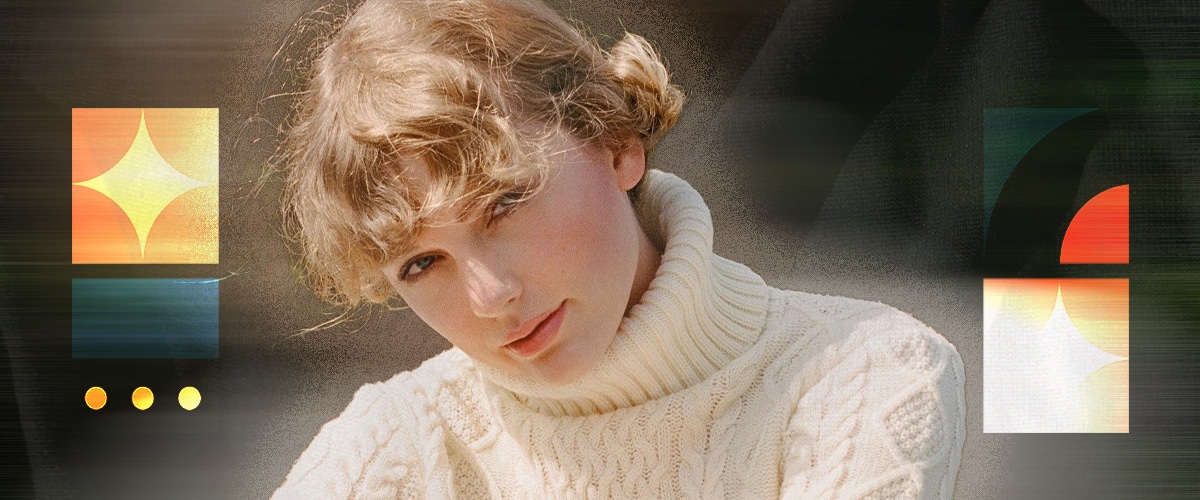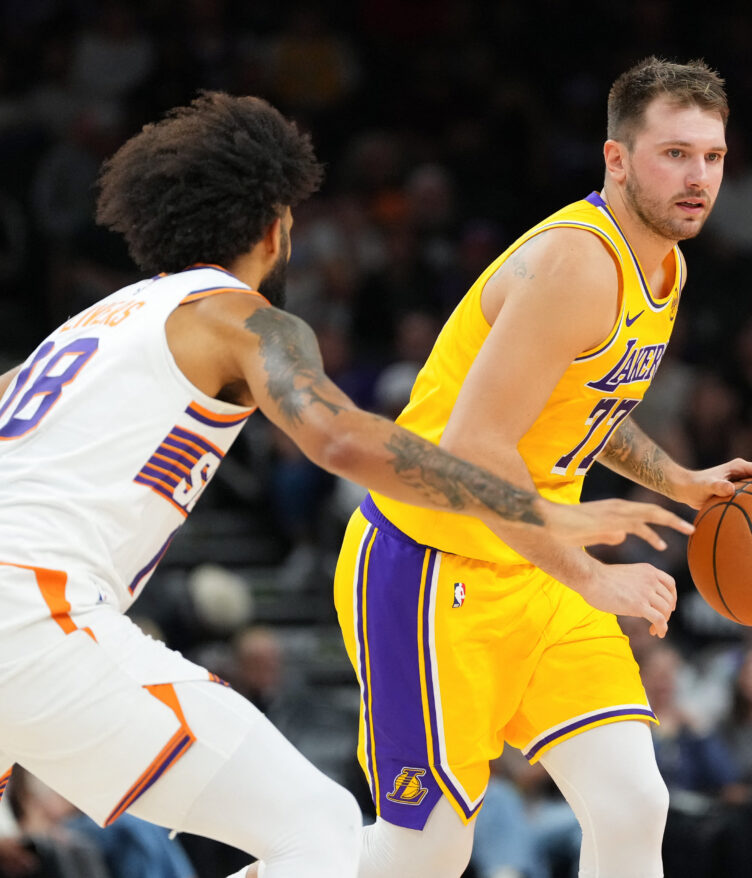TIME is supposed to heal.
At least, that’s what most people say.
They talk about healing like it’s a perfect straight line— a neat sequence of moments that only moves forward, never backward. Like time draws a clear path from pain to peace, and all you have to do is follow it.
But it’s never that simple. Healing is a lot messier.
Because if it were that easy, trauma wouldn’t linger in so many lives. Those countless self-help books wouldn’t crowd the shelves, each promising to teach you how to love yourself, let go of the past, or stop hurting altogether.
Sometimes, time moves on. With or without you.
The world keeps spinning. Seasons change. You meet new people, lose a few— and yet, you’re still there. At the very beginning. A living relic frozen in time.
Taylor Swift’s ‘Right Where You Left Me’ captures this feeling perfectly. It tells the story of a girl, unable to leave her place at the restaurant:
“Help, I’m still at the restaurant. Still sitting in a corner I haunt,” sings Swift’s protagonist.
In the bridge of the song, we learned that it was because of a breakup she experienced when she was twenty-three, which occurred during a dinner with her lover:
“Did you hear about the girl who lives in delusion? Break-ups happen every day, you don’t have to lose it. She’s still 23 inside her fantasy, and you’re sitting in front of me.”
That moment—the breakup at the restaurant—becomes a trap, a fixed point in time where everything else fades away. While life rushes forward, she remains anchored to that table, that conversation, that heartbreak. The world moves on around her, but she can’t.
Although the feeling of being left behind is isolating, it is a phenomenon shared by many. Whether it’s the end of a relationship, the loss of a loved one, or a shattered dream, countless people find themselves stuck in moments they can’t seem to escape.
The Pressure to Heal Quickly
There’s a strange kind of urgency wrapped up in how many expect people to heal. Like pain is something you can schedule, put in a neat little box, then check off and forget.
Someone who lost a job is expected to bounce back quickly. Someone who lost a friend, a parent, a loved one is told to “move on” as if grief had a timer counting down.
And when it comes to a breakup, well, that pressure only feels louder—like you’re supposed to be over it yesterday.
The last one, especially, hit close to home. I was in a long-term relationship—my first ever—with a boyfriend. Three years of highs and lows, a constant back-and-forth filled with anxiety and the gnawing fear that he might cheat on me again.
Those three years felt like a lifetime compressed into moments of hope and doubt. It was an absolutely traumatic relationship—emotionally abusive in ways that slowly chipped away at my sense of self. Every “I love you” was shadowed by the question: Will this last? Every goodbye carried the weight of uncertainty and fear.
And when it finally ended, people were quick to tell me how much better off I was without him—how I should be moving on, moving up, moving past. Moving fast. Because they believed that healing was a race, and that lingering in pain meant weakness or failure.
But healing didn’t work that way for me.
I wasn’t ready to just erase what we had, no matter how painful it was. Instead, I found myself stuck, left behind in that same emotional restaurant—waiting for a closure that didn’t come, sitting with the mess nobody else wanted to stay with.
There are many reasons why people believe that moving on quickly is better.
For one, many societies value strength and resilience. And they often equate these things with moving on fast. There’s an underlying belief that lingering in pain or sadness is a failure or a sign of weakness. People want to see progress and closure because it feels reassuring and tidy— a life back on track.
At the same time, friends and family often want to protect us from ongoing pain, so they push us to move forward before we’re ready. Their intentions may be kind, but it can come across as dismissive or invalidating. They want us to avoid suffering, but healing isn’t a linear process or a quick fix.
And then, there’s also the reason for discomfort around pain. Most people don’t know how to sit with someone’s hurt without feeling awkward or helpless. So, they encourage “moving on” as a way to avoid facing the rawness of emotions—both in others and themselves.
But it is through sitting with the pain and staying right where I was left that allowed me to understand my own story more clearly. It was through that stillness and presence that I finally started to heal, on my own terms.
Healing doesn’t happen when you rush away from the hurt. It happens when you give yourself permission to feel every uncomfortable emotion—to be angry, confused, broken, and scared.
It’s messy, and it’s slow, and sometimes it feels like you’re going nowhere. But that’s where the real work begins.
What Staying Meant For Me
It’s infuriating. How polite heartbreak is expected to be. Like I’m not supposed to scream in the middle of dinner. Everyone wanted me to heal fast. Be the cool ex. The empowered one.
But I didn’t want to be empowered—I wanted to be held. Or at least heard.
I didn’t stay because I was weak. I stayed because I needed to be honest with myself. With how I feel about the entire situation. And this honesty is what allowed me to truly move forward.
I remained sitting at the table not just because I was stuck— but because I was sitting with the truth. Having a conversation with it. Trying to process the dialogue that occurred long after my ex had left.
It was my way of honoring the version of myself that survived that relationship—who loved everything she had, despite the pain and betrayal. The part of me that refused to disappear quietly, that deserved to grieve in her own time and her own way.
It might seem foolish to others, but if I’m truly going to heal, I need to experience every part of this pain—the good, the bad, and everything in between. I don’t want to rush through it, only to realize later that I’m still carrying these feelings beneath the surface.
Leaving the Restaurant
Maybe you’re still at the restaurant. Maybe the space still feels heavy, thick with memories and silence. I can’t promise that things will suddenly become easy or that the weight will lift overnight.
What I can promise instead is that somewhere along the way, the pain will become bearable.
That was what happened to me.
It took a long time. I stayed so long that eventually, the silence stopped feeling like an empty void and started feeling like a quiet place to breathe.
I learned to rearrange the pain, to carry it differently—no longer a burden that crushed me, but a part of my story I could live with.
I stopped waiting for him to come back, for apologies or explanations that would never come.
And in that moment, quietly and on my own terms, I stood up.
Not with a bang or a sudden revelation, but with a steady, calm acceptance that this was my healing, and it would happen when it was ready.
If you’re still sitting at that table, know this: you are not weak. You are brave. You are healing.
And when you stand up, it will be on your own terms—and that’s what truly matters.
How useful was this post?
Click on a star to rate it!
Average rating 0 / 5. Vote count: 0
No votes so far! Be the first to rate this post.
We are sorry that this post was not useful for you!
Let us improve this post!
Tell us how we can improve this post?







